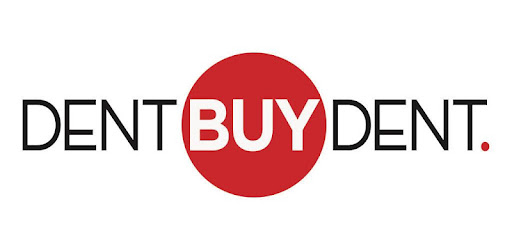Content
Evaluate these aspects to choose a crypto wallet that meets your security needs and offers whats a crypto wallet convenience for managing digital assets. Understanding the differences between custodial and non-custodial wallets allows users to make informed decisions based on their security, convenience, and control preferences. Web wallets allow users to manage cryptocurrencies directly through a browser without downloading software. This accessibility makes them popular for those who prefer ease and speed over heightened security measures. Modern wallets have revolutionized how individuals interact with the blockchain, making it more accessible and user-friendly.
What to look for in a crypto wallet
The private keys are held in some web https://www.xcritical.com/ wallets and are prone to DDOS attacks. Based on these keys, an alphanumeric identifier called address is generated. In essence, this address specifies the location to which coins can be sent to the Blockchain. The address can be shared to receive funds, but private keys are to be never disclosed. The private key can be used on any wallet for accessing the cryptocurrency.
Best for Beginners: Coinbase Wallet

Blockchain works with a public key infrastructure model for cryptography. A public key and private key are only supposed to be known by users that hold a given asset or cryptocurrency. Just as a private personal identification number is used to access a bank account with a bank card, a private key is needed to access the asset on a blockchain. A crypto Non-fungible token wallet provides a way for users to validate an account balance to provide visibility into how much cryptocurrency the user owns. For many users, a crypto wallet is a primary mechanism for managing cryptocurrency balances.
What kind of wallet do I need for crypto?
For more details about the categories considered when rating wallets and our process, read our full methodology. Our aim is to provide our independent assessment of providers to help arm you with information to make sound, informed judgements on which ones will best meet your needs. The investing information provided on this page is for educational purposes only. NerdWallet, Inc. does not offer advisory or brokerage services, nor does it recommend or advise investors to buy or sell particular stocks, securities or other investments.
What Is a Crypto Wallet? Types of Crypto Wallets to Know.
These wallets usually come as hardware devices that look like USB sticks and cost between $50 and $200. Cold wallets differ from hot wallets in that they don’t have a connection to another device or the internet. Hot wallets are accessible from internet-enabled devices such as cellular phones, tablets, and laptops. They have been widely adopted by cryptocurrency users because they are an interface that makes it easier to transfer and receive cryptocurrency.
So, if you ever lose access to your device, this is the only way to recover your wallet. That’s why it’s recommended to store your recovery seed in a secure, offline location to ensure you can retrieve access to your assets. What sets desktop wallets apart is that, in many cases, they only connect to the internet when you need to make a transaction.
- Instead, it stores the cryptographic keys that prove your ownership of these digital assets on their respective blockchains.
- Password managers like LastPass can generate and store complex passwords, reducing the risk of unauthorized access.
- These devices might resemble a USB drive, and modern hardware wallets have several features.
- However, as the number of crypto users has gone up, so has the rate of cyber theft related to cryptocurrencies.
- Curious to know the impact and in-depth understanding of crypto compliance in businesses?
When crypto is held on devices like these, your wallet is not connected to the internet and therefore not at risk of being hacked. The best cryptocurrency key security measures involve removing your keys from your wallet, placing them in a form of cold storage, and securing them in a vault, safe, or deposit box. The more steps it takes for you to access your cryptocurrency keys, the harder it is for a criminal to access them. It also ensures that someone you have entrusted with your keys doesn’t lose them or deny you access to them.

To better understand the difference between these wallet types, it is essential to know what function private keys fulfill. In addition to signing transactions for authorization on a blockchain, they serve as a wallet’s encrypted password. They can be used to access a wallet and its balances from any device, as well as to import one wallet into another. Therefore, the issue of storing private keys is vital to a wallet’s security and it defines the difference between custodial and non-custodial wallets.
This kind of storage was very popular in the early days of Bitcoin, but it is now generally considered to be technologically obsolete and risky. Firstly, it’s important to make the point that no cryptocurrency can be stored on paper. Hot storage media are entirely online and include a wide range of individual crypto wallet types.
In addition, they are especially convenient for managing your portfolio from any device with an internet connection. They’re easy to set up, provide quick access to funds, and are great for day-to-day transactions. For instance, if a friend wants to send you Bitcoin, they would use your public key to encrypt the transaction while their private key authorizes it. Afterward, the network ensures everything is legitimate, and the transaction gets recorded on the blockchain.
These devices might resemble a USB drive, and modern hardware wallets have several features. However, they are a bit complex and are therefore used by advanced users, those who want a high level of security. Crypto.com DeFi Wallet is a wallet created by a company mostly known for its crypto exchanges.
The leak included various old passwords as well as many current passwords for email and bank accounts. So, when you think of cryptocurrency and the money involved in it, it is quite important to think of security. These are crypto wallets that are entirely offline, keeping your funds more secure but also adding an extra step to enter your funds online to start trading or spending them. Hardware wallets are often considered the most secure because it keeps your funds offline and from being hacked. Now, if you’ve got a small crypto fortune and just want to make sure nobody can get their hands on it but you, you’d probably be best served by a hardware wallet. However, if, like most people, you’ve not managed to attain millionaire status just yet, you’re probably going to be interested in trading your cryptocurrencies actively.
The downside is that if the paper is lost, the funds are also lost. Anybody who gets that piece of paper can access to the crypto stored on it. Cold wallets aren’t limited to electronic devices like hardware wallets—there’s also the option of paper wallets, which remain completely offline. It is essentially a piece of paper that holds your public address and private keys, making it a simple, offline way to store your cryptocurrency. Hot wallets are connected to the internet and are commonly used to purchase blockchain-related items. Hot wallets are often used to buy different digital assets, such as NFTs, and are linked to various websites.
